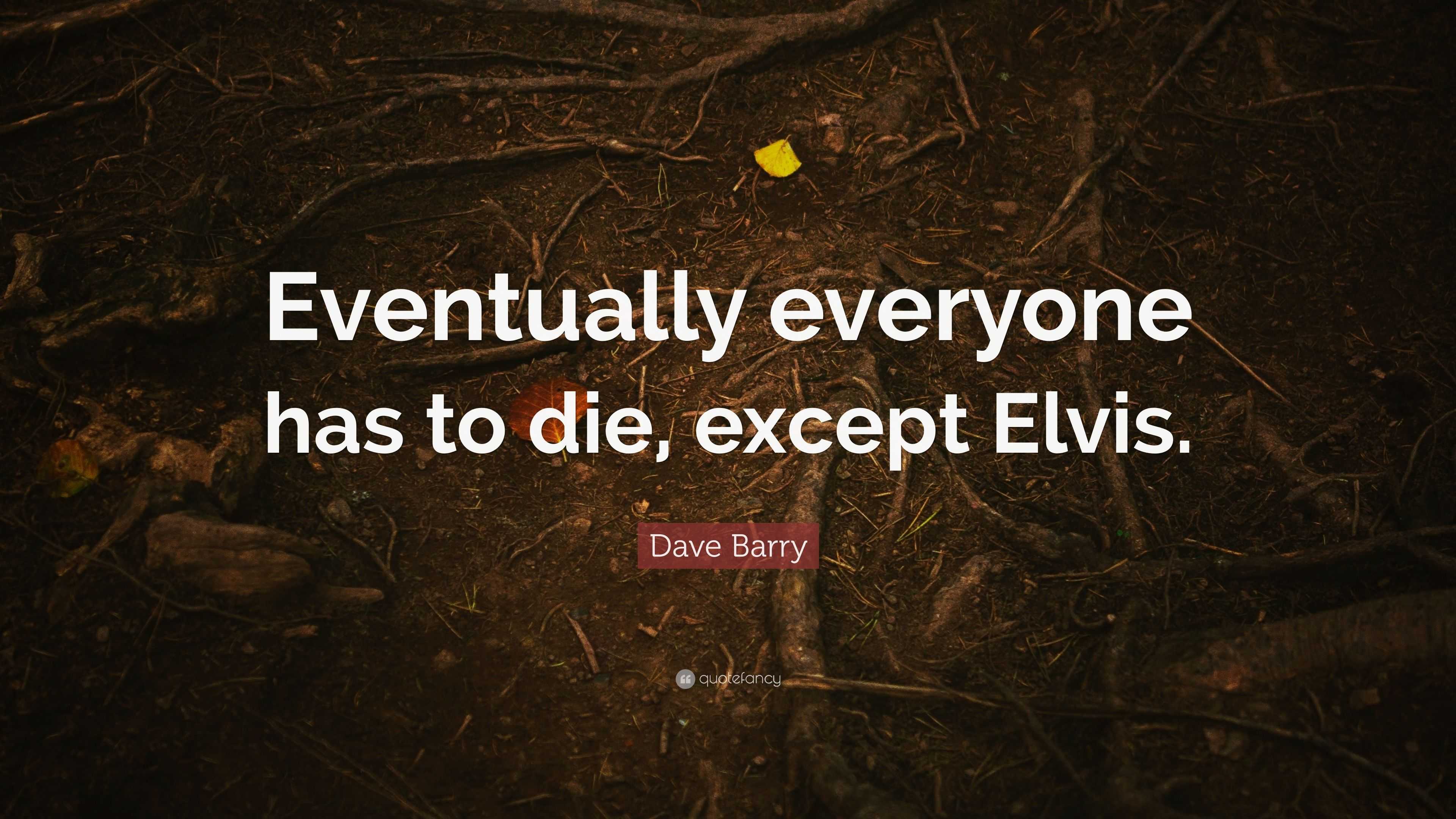Understanding The Concept Of "Eventually Die Off"
The cycle of life is an intricate dance, where every being has its time to shine and its time to fade. This natural process often evokes feelings of nostalgia and reflection, as we consider the transient nature of existence. When we think of organisms, species, or even trends, we encounter the term "eventually die off," which signifies the inevitable decline and extinction of certain elements in our world. This phenomenon is not just limited to living beings; it can also apply to ideas, trends, and practices that may dominate the landscape before slowly fading into obscurity. Understanding why and how things eventually die off can offer valuable insights into the natural world and the dynamics of life itself.
As we navigate through life, we witness various forms of life and cultural trends that flourish and then decline. From the extinction of certain animal species to the waning popularity of once-beloved television shows, the principle remains the same: everything has a lifespan. By examining the factors that contribute to this cycle, we can comprehend the significance of sustainability, adaptation, and evolution. In this article, we will explore the different aspects of this concept, including its implications in ecology, culture, and even personal lives.
Join us as we delve into the intricacies of what it means to eventually die off, shedding light on the processes that govern life, trends, and even societal practices. We will address questions surrounding this issue and consider how understanding this concept can help us appreciate the transient beauty of existence.
What Does "Eventually Die Off" Mean?
The term "eventually die off" refers to the process by which organisms, species, or even cultural phenomena experience a decline that leads to their disappearance over time. This can be due to various factors, including environmental changes, competition, and shifts in societal values. Understanding this concept is crucial as it highlights the impermanence inherent in life.
Why Do Some Species Eventually Die Off?
Species extinction is a natural part of evolution. Several reasons contribute to why certain species eventually die off:
- Habitat Loss: Human activities, such as deforestation and urbanization, lead to loss of habitats, making it difficult for some species to survive.
- Climate Change: Alterations in climate can disrupt ecosystems, affecting food sources and breeding patterns.
- Invasive Species: New species introduced into an ecosystem can outcompete native species for resources.
- Overexploitation: Excessive hunting or fishing can deplete populations faster than they can recover.
What Role Does Evolution Play in the Process?
Evolution is a driving force behind the concept of eventually die off. As environments change, species must adapt to survive. Those that cannot adapt may face extinction. This continual process of natural selection shapes the diversity of life we see today.
Can Cultural Trends Eventually Die Off Too?
Just as species face extinction, cultural trends can also experience a decline in popularity. This can lead to certain practices or ideas fading from collective memory. Factors contributing to this include:
- Changing Values: As society evolves, so do its values, leading to the decline of outdated practices.
- Technological Advancements: New technologies can make older trends obsolete.
- Generational Shifts: Different generations often have differing tastes and preferences.
How Can We Prevent Certain Trends from Eventually Dying Off?
To preserve cultural trends, communities can actively promote their significance through education, participation, and innovation. By adapting these trends to modern contexts, they can remain relevant and appreciated.
What Are the Psychological Implications of Things That Eventually Die Off?
The notion of eventually die off can also carry psychological weight. For individuals, witnessing the decline of beloved trends or cherished species can evoke feelings of loss and nostalgia. Recognizing this can help us address our emotional responses to change and impermanence.
How Does Understanding "Eventually Die Off" Benefit Us?
By comprehending the concept of eventually die off, we can develop a deeper appreciation for the cycles of life and the importance of sustainability. It encourages us to be proactive in preserving the ecosystems and cultural practices we value.
Are There Examples of Species or Trends That Have Successfully Adapted?
There are numerous examples of species and trends that have successfully adapted rather than eventually die off. For instance:
- Species: The peppered moth adapted to pollution by changing its coloration to match soot-covered trees.
- Cultural Trends: Vintage fashion has seen a resurgence as modern designers incorporate retro elements into their collections.
In conclusion, the concept of eventually die off serves as a reminder of the transient nature of life and culture. Understanding the factors that contribute to this phenomenon allows us to appreciate the beauty of existence while also recognizing our role in preserving what is valuable. As we navigate through the ever-changing landscape of life, let us embrace adaptation and sustainability, ensuring that the things we cherish do not fade away into obscurity.



ncG1vNJzZmixn6PAtr7IZqWeq6RjsLC5jq2pnqaUnruogY6erZ6mpKqurbjYZpuinV2ks6d6x62kpQ%3D%3D